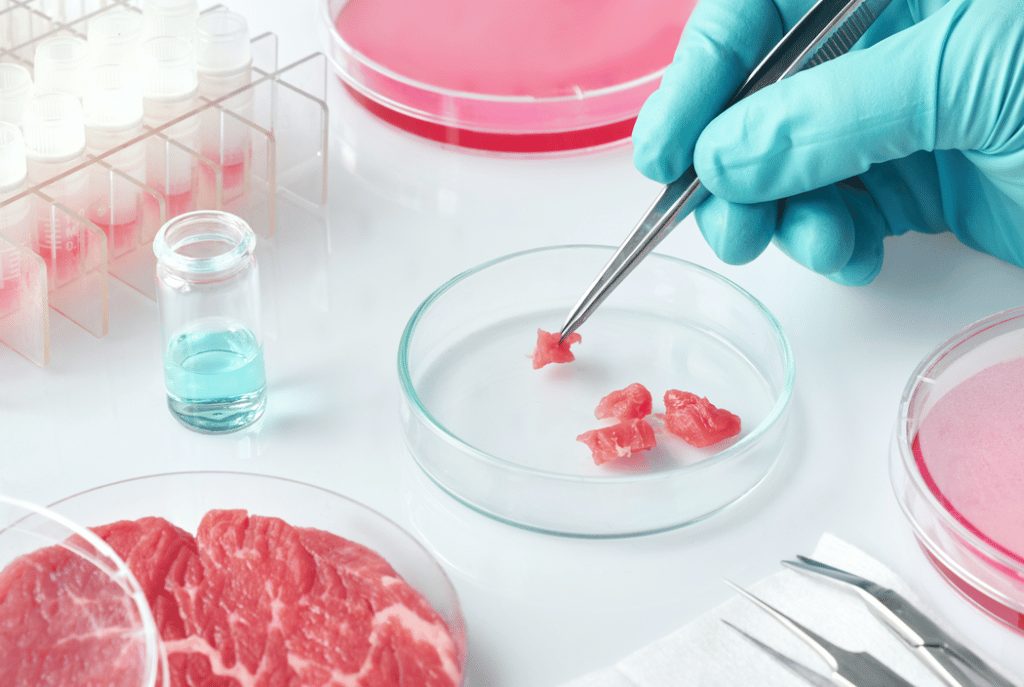Source: The Pig Site 6 September 2021, photo credit: Food Tech Blog 2020
Chinese start-up CellX unveiled a selection of lab-grown pork dishes on 3 September and said it was aiming to produce the more environmentally friendly meat at competitive prices for the world’s top meat-eating nation by 2025.
“The taste is on the bland side … but overall it’s not bad,” said Li Peiying, a guest who tested the minced pork blended with plant protein.
Cultured meat, or meat grown from animal muscle cells in a lab, could significantly reduce the environmental impact of farming animals, say its proponents, while also avoiding welfare issues and disease.
China in particular, which consumed 86 million tonnes of meat in 2020 or about 30% of global demand, is in urgent need of a cleaner meat supply to meet its carbon goals, says CellX.
Meat grown in the lab could also offer a more stable food supply to a market that has faced huge shortages and volatility following the outbreak of African swine fever in 2018.
But production costs in the nascent industry are still far higher than conventional protein, and analysts say consumers could balk at eating artificially grown meat.
In China, however, “there are lots of people wanting to try it,” CellX founder Yang Ziliang told Reuters.
Yang declined to comment on current production costs but said the company, founded just last year, was aiming to be cost competitive with animal meat by 2025.
Read more
The South African Pork Producers’ Organisation (SAPPO) coordinates industry interventions and collaboratively manages risks in the value chain to enable the sustainability and profitability of pork producers in South Africa.
















